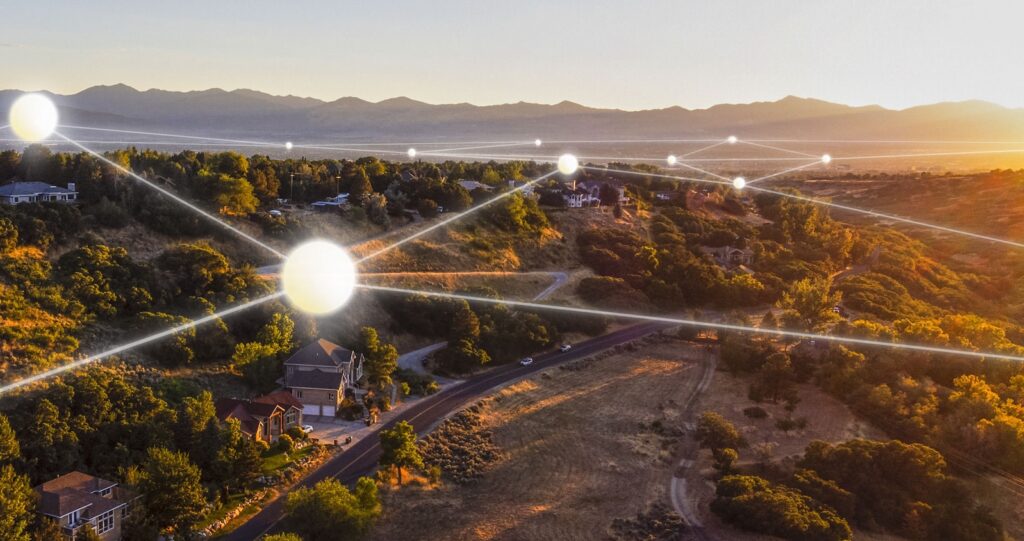Sign up for CleanTechnica’s Weekly Substack for Zach and Scott’s in-depth analyses and high level summaries, sign up for our daily newsletter, and/or follow us on Google News!

Things are running hot and heavy over at the Texas electricity grid as skyrocketing demand meets climate-linked weather events. Despite the state’s ruby-red political environment, the need for speed is sending grid managers on a scramble after solar and energy storage resources. That opens up new opportunities in the virtual power plant field, and Shell is right up there among the front runners.
Shell Subsidiary Plans To Out-Tesla Tesla In The Virtual Power Plant Field
If you’re getting tired of negative stories about Tesla, join the club. There is plenty of other auto industry news to go around. But, Tesla CEO Elon Musk has diligently promoted his company as the brainchild of an engineering genius, pride goeth before a fall, and the bigger they are the harder they fall. Also, nobody forced Musk to take time off from his CEO tasks to promote right wing ideology or cut thousands of federal workers off from their livelihoods.
The fact is that Tesla’s spiraling brand reputation crisis is more than a matter of lost EV sales. Competitors are also circling around Tesla’s other businesses, including energy storage and virtual power plants.
In the latest development, the leading global energy storage firm sonnen — a fully owned subsidiary of Shell — has launched a new statewide virtual power plant in Texas, in collaboration with the US firms Abundance Energy and Energywell Technology Licensing.
“The collaboration empowers Abundance Energy customers to use their sonnenConnect home batteries to support grid stability, ensure reliable energy delivery, and lower electricity costs while driving the development of smart, sustainable energy solutions,” the partners explain.
In an email to CleanTechnica earlier this week, sonnen also stated that the new virtual power plant is on track to become the biggest such system in Texas, rapidly out-doing Tesla’s much-publicized, recently launched VPP in the same state.
The customers currently enrolled in the sonnen-Abundance-Energywell VPP already account for a cumulative total of 60 megawatt-hours according to sonnen, with each home hosting two of its 4.8kW/20kWh sonnenCore+20 energy storage units.
With additional customers added by the month, sonnen expects to surpass the Tesla VPP by the end of next year.
A Virtual Power Plant And A Power Purchase Agreement Are Both Coming For Your Fossil Fuels
Virtual power plants are not necessarily centered around renewable energy. The basic idea is to store extra kilowatts during periods of low demand and excess availability, and sell it (or contribute it) back to the grid when demand rises, so it all depends on the grid mix.
Still, one purpose of a VPP is to reduce, if not eliminate, the need for expensive new gas peaker plants to handle temporary demand spikes. VPPs also save money for ratepayers and contribute to grid resiliency. Additionally, VPPs enable utilities to incentivize their customers to store excess renewable energy. Rooftop solar owners are particularly ripe targets for VPP systems, and that is one of the reasons why sonnen expects the new VPP venture to grow rapidly.
The Texas venture hooks sonnen’s energy storage technology up with the “Virtual Power Plant Power Purchase Agreement” model developed by the firm SOLRITE Energy. Similar to the familiar utility-scale power purchase agreement, the SOLRITE VPA enables individual ratepayers to access solar energy and energy storage infrastructure at no up-front cost.
The VPA enables ratepayers to pay off the cost of installing new rooftop solar panels and home batteries by the kilowatt-hour, while also enjoying the benefits of participating in a virtual power plant. SOLRITE’s website lists the current charge at just $0.12/kWh. In the email to CleanTechnica, sonnen also noted that 5,000 customers are already committed to the new VPP through their relationship with SOLRITE.
It Takes A Village To Launch A VPP
The other collaborators in the project are new to the pages of CleanTechnica. As noted in sonnen’s email, Abundance Energy currently covers 3,000 ratepayers that are ready to enroll in the new VPP. Abundance is a branch of the multi-family energy management firm Quext, known for its smart thermostats and Internet connectivity.
Energywell is contributing its “Proton” forecasting and optimization platform to the effort. In combination with sonnen’s virtual power plant control system, each battery in the VPP is managed in real time to coordinate customer use with market conditions and the availability of solar energy.
“By combining sonnen’s best-in-class battery and Virtual Power Plant technology, Energywell’s market expertise through its Proton platform, we are delivering an innovative VPP model that benefits both customers and the Texas grid,” explained Abundance CEO Thomas Mandry in a press statement earlier today.
Michael Fallquist, CEO of Energywell also chipped in his two cents. “By optimizing stored energy, we are reducing reliance on fossil fuels and lowering carbon emissions, building a smarter, cleaner, and more flexible grid,” he emphasized.
Who’s Afraid Of The ESG?
Of course, no news about Texas is complete without a mention of the state’s renewable energy journey. The state’s unique ERCOT electricity grid has made Texas almost entirely dependent on in-state resources, leading Republican and Democratic lawmakers alike to pave the way for an explosion of wind farms in the early 2000s, followed by furious activity in the solar and energy storage fields as well.
More recently, the energy picture has cleaved along party lines, with Republican legislators in Texas leading the charge against ESG (environment, social, governance) investing principles in a not-veiled-at-all attempt to block investor dollars from flowing into renewable energy projects.
Based on the pace of renewable energy activity in Texas, they haven’t had much success so far. That could change later this year as a fresh round of obstructive legislation winds its way through the statehouse. Nevertheless, Texas will continue to have an outsized impact on the nation’s renewable energy progress, particularly in the solar industry.
Texas lawmakers can make it more difficult to launch utility-scale solar projects within their borders, but the rooftop solar field is a whole ‘nother kettle of fish. Besides, policy makers in other US states are eager to develop more clean kilowatts, and new solar factories in Texas are churning out more solar products every day.
Image (cropped): A unique new virtual power plant in Texas leverages solar-plus-storage power purchase agreements to attract more ratepayers (courtesy of sonnen).
Whether you have solar power or not, please complete our latest solar power survey.
Have a tip for CleanTechnica? Want to advertise? Want to suggest a guest for our CleanTech Talk podcast? Contact us here.
Sign up for our daily newsletter for 15 new cleantech stories a day. Or sign up for our weekly one on top stories of the week if daily is too frequent.
CleanTechnica uses affiliate links. See our policy here.
CleanTechnica’s Comment Policy




